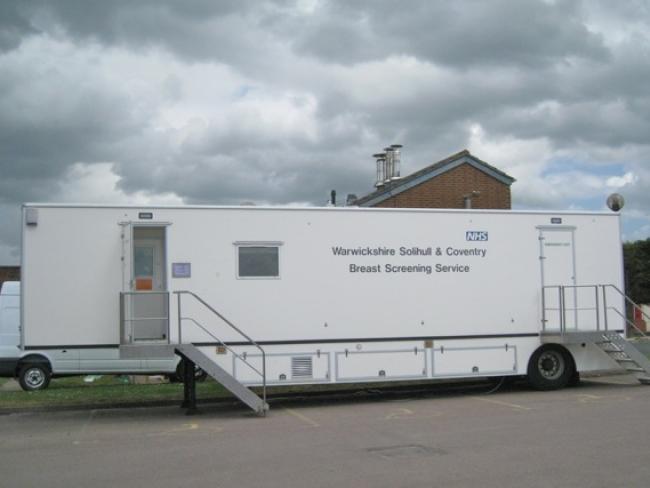20 February 2021

Mobile breast screening unit, Stratford Hospital. Photo Robin Stott (CC BY-SA 2.0)
Most breast screening programmes in Britain were paused in March 2020 because of Covid-19. Screening has since restarted, but there’s much to be done to catch up. The charity Breast Cancer Now estimates almost a million women have missed mammograms.
According to a paper in the journal CA: A Cancer Journal for Clinicians, breast cancer has overtaken lung cancer to become the most common cancer worldwide. The incidence of breast cancer is much higher in developed countries and is the most common cancer diagnosis in Britain – around 15 percent of all diagnoses (and 30 per cent of all cancers for women).
Although breast cancer is the most prevalent type of cancer, lung cancer is the leading cause of cancer death. But despite a significant drop in breast cancer mortality in the decade to 2018, it is still the second highest cause for women at 15 per cent compared to 21 per cent for liver cancer.
Benefits
Increased screening for cancers can lead to higher reported levels of diagnosis. Yet screening programmes still offer the greatest benefit to catch conditions at an early stage when treatment is more likely to be successful. And in the case of cervical screening, “…sometimes helping prevent cancer developing in the first place”, says Sophia Lowes, health information manager of Cancer Research UK.
Increased screening had seen a significant increase in diagnosis and effective treatment for many types of cancer. But according to the Dr Hans Kluge, the World Health Organisation’s European director, the Covid-19 pandemic is having a “catastrophic” impact on cancer treatment. He estimated that delayed diagnosis and treatment could result in a 9 per cent increase in breast cancer deaths over the next 5 years, and more for colorectal cancers.
Catch up
Mary Wilson, lead for the National Breast Imaging Academy Project, said, “Screening diagnoses around 19,000 breast cancers a year in England and there has already been a delay of over four months in the programme. To not only maintain pre-pandemic levels of activity, but also do a huge catch up with inadequate workforce levels is an enormous mountain to climb.
“Our most valuable asset is our staff – we simply have to invest in them. We desperately need more radiologists. You can’t make a radiologist quickly, so a long-term investment plan is essential. There’s no overnight fix. As a nation we must recognise and address the workforce issues and invest in the NHS which throughout the pandemic has done a fantastic job. But we now really do need ongoing support.” The NBIA has moved rapidly to digital learning as part of its recovery plans.
